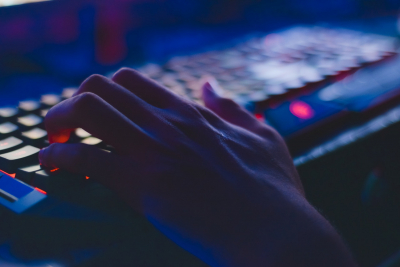


The COVID-19 crisis is impacting mental health of citizens, and technology is often used to help alleviate the stress and anxiety, caused by the pandemic itself or the measures of prevention (i.e., self-isolation, quarantine, or lockdown). This habit is not always harmless, and although for the vast majority ICT use should not be pathologised, a subgroup of vulnerable individuals are at risk of developing problematic usage patterns.
IAP YPL alumna Biljana Gjoneska, a Research Associate at the Macedonian Academy of Sciences and Arts, recently co-authored an article about this issue. Published by Comprehensive Psychiatry Journal, the article entitled “Preventing problematic internet use during the COVID-19 pandemic: Consensus guidance” discusses these risks and makes some practical recommendations that may help diminish them.
We asked her two questions regarding her work.
Why is this issue relevant?
The COVID-19 pandemic has highlighted the importance of behavioral and mental health sciences. They complement the medical and pharmaceutical sciences, compensating for the lack of effective prevention (vaccine) or treatment (medicines), by offering safe guidelines for collective behavioral adjustments, and ultimately acting as safeguards of our health
One of the main recommendations, voiced universally by all relevant health and governmental bodies, is that for physical or spatial distancing. Internet becomes a main enabler of this behavioral adjustment, providing people with means for distant socializing, while remaining physically distanced from each other. Furthermore, Internet also compensates (partially or substantially) for the professional, economical and cultural losses, incurred to the individuals and societies. However, the Internet use in its essence represents rewarding and reinforcing behavior, so it comes with its own set of challenges. Namely, the increased use of Internet, increases the risk for problematic and addictive behaviors in subgroups of vulnerable individuals. So, if used without caution, it can reverse the health effects (causing a distress instead of helping to prevent it), or even amplify the stress of the affected individuals. So, the prevention of the problematic internet use, becomes especially relevant in these times of crisis. I was honored to team-up with world-leading experts in the field of behavioral addictions (including problematic internet gaming and gambling), in order to help compile consensus guidelines for safe practicing of internet. They were recently published in the journal of “Comprehensive psychiatry” and they offer clear and concise instructions for the general public, on how to monitor and control internet use, thus helping to cope effectively with the crisis and to improve one’s mental health.
You were selected by IAP for the YPL programme: what did it mean to you both on a professional and personal level?
The programme contains many valuable aspects, and the COVID-19 pandemic has revealed them to me under a new light. They are related to both the national andthe individual benefits. As regards the former, one of the earlier YPL alumni, Dr. Venko Filipče, is our current Minister of Health, and I can recognize the YPL teachings behind his guiding principles of setting positive example and leading people to respect health recommendations. As for me, I also recognise the importance of international collaboration, fast coordination with fellow medical experts, and transparent scientific communication, which are the cornerstones of the YPL programme and IAP community. The IAP is my safety net and my safe nest, providing wind at my back and giving me energy to carry on, stronger and smarter than before. It is a place where I return times and again, to team-up with fellow members, consult with colleagues, or simply gain momentum for the next scientific challenge. Thank you IAP!
